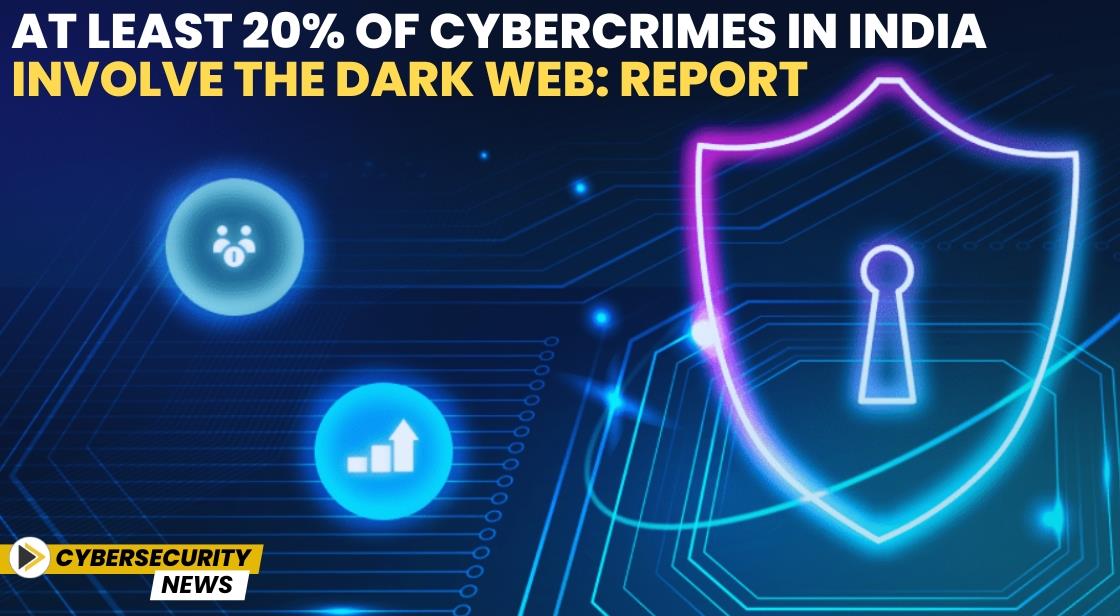At Least 20% of Cybercrimes in India Involve the Dark Web: Report

News Synopsis
A new report from cybersecurity firm Lisianthus reveals that approximately 20% of cybercrimes in India are linked to the dark web. This hidden part of the internet, typically accessed through specialized tools, offers a level of anonymity that makes it an attractive platform for cybercriminals. These criminals are using the dark web to carry out a variety of illegal activities, from data breaches and hacking to the sale of banned products like drugs and weapons.
The Dark Web’s Role in Cybercrime Activities
The dark web is a clandestine part of the internet where users can hide their identity and location, making it a hotspot for criminal activities. According to the study, the dark web is increasingly used by attackers to engage in a wide array of cybercrimes:
-
Hacking and Data Breaches
Criminals exploit the dark web to target companies and individuals, stealing sensitive data or compromising networks. -
Phishing and Ransomware Attacks
Phishing campaigns and ransomware attacks often originate from the dark web, as attackers can access stolen data and demand payments in cryptocurrency. -
Illegal Trade of Narcotics and Weapons
The dark web is also a marketplace for illegal items like drugs, firearms, and stolen goods, making it a critical area of concern for law enforcement.
Report Findings and Methodology
The study conducted by Lisianthus Tech took a detailed look at multiple cybercrime cases reported across India over a two-month period. The analysis included data from various sources, including state police, the National Crime Records Bureau (NCRB), and other relevant cybercrime reporting portals.
The findings were validated through consultations with industry experts, cybersecurity consultants, and law enforcement representatives.
Key Statistics and Insights from the Report
Usage of the Dark Web:
"At least 20 percent of cybercrimes in India involve the usage of the dark web by online attackers," the report noted. This figure highlights a significant uptick in dark web involvement in cybercrime activities.
The Rise of Dark Web Usage:
The report further revealed that the use of the dark web for cybercrime has doubled in the last decade. With cybercriminals finding it increasingly easier to conduct illicit activities anonymously, the dark web has become an essential tool for many attackers.
Notable Cases Linked to the Dark Web
Several high-profile cybercrime cases have recently come to light, demonstrating the dark web’s role in facilitating illegal activities. One such case involved a man who was arrested for cultivating cannabis in his rented flat and selling it on the dark web. Another example is the infamous ransomware attack on the All India Institute of Medical Sciences (AIIMS) in Delhi, which was also linked to dark web activity.
How Cybercriminals Utilize the Dark Web
The dark web provides cybercriminals with an easy way to exchange stolen data, sell illicit goods, and plan malicious activities. The anonymity offered by the dark web makes it difficult for law enforcement agencies to track criminals, creating a significant challenge in combating cybercrime.
Rising Challenges for Cybersecurity in India
With the growing involvement of the dark web in cybercrimes, the need for stronger cybersecurity measures is more urgent than ever. The report advises users to take steps to protect their personal data, such as being cautious about online notifications asking for access to their phone book and other sensitive information.
Security Recommendations for Internet Users
To avoid falling victim to dark web-related cybercrimes, Lisianthus Tech recommends that users adopt best cybersecurity practices:
-
Be cautious of suspicious online requests
Do not grant permissions to online notifications requesting access to your personal data. -
Use strong, unique passwords
Implementing strong and secure passwords can help protect against hacking attempts. -
Enable multi-factor authentication
This adds an extra layer of security to online accounts, making it harder for cybercriminals to gain unauthorized access.
Conclusion
The report by Lisianthus highlights the growing risk posed by the dark web in India’s cybercrime landscape. With a significant portion of cybercrimes now involving dark web activities, law enforcement agencies, cybersecurity firms, and internet users must remain vigilant.
The rise of dark web usage in the past decade points to an urgent need for enhanced security measures to protect sensitive data from cybercriminals who exploit this hidden internet space.
You May Like









